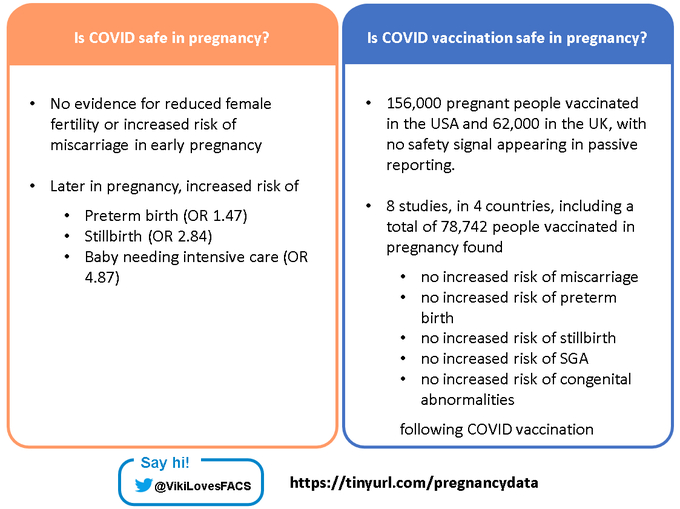
Stressful times (war, famine) are associated with people experiencing more anovulatory and abnormal menstrual cycles.
But what about the pandemic? This paper used data from 18,076 ppl tracking their cycles with @NaturalCycles app to investigate… 🧵
journals.plos.org/plosone/articl…
But what about the pandemic? This paper used data from 18,076 ppl tracking their cycles with @NaturalCycles app to investigate… 🧵
journals.plos.org/plosone/articl…
The authors looked at user data entered from March - September 2019 (pre-pandemic) compared to March - September 2020 (Pandemic). They also asked users to rate their stress levels (retrospectively) in the pre-pandemic and pandemic periods. 2/
The average cycle length decreased from 29.4 to 29.q6 days, and the average period of menstruation increased from 4.21 to 4.23 days.
Neither of these changes is clinically significant. 3/
Neither of these changes is clinically significant. 3/
7.7% of participants experienced more anovulatory cycles in the pandemic, and 19.5% experienced more abnormal cycles. 4/
But, *surprisingly*, 9.6% of participants experienced fewer anovulatory cycles, and 19.6% experienced fewer abnormal cycles.
So overall (and contrary to what we see in wars and famines) ppl were just as likely to have more regular, ovulatory cycles as fewer. 5/
So overall (and contrary to what we see in wars and famines) ppl were just as likely to have more regular, ovulatory cycles as fewer. 5/

Finally, self-reported stress level made no difference to how likely people were to experience abnormal cycles. 6/
So what does this tell us?
First, we find no evidence in this population to support the anecdotal reports that I have heard from some of my colleagues in gynae that they were approached with more complaints of cycle irregularities during the pandemic. 7/
First, we find no evidence in this population to support the anecdotal reports that I have heard from some of my colleagues in gynae that they were approached with more complaints of cycle irregularities during the pandemic. 7/
(Not to say my colleagues are wrong, of course. They are looking after different populations, or maybe people were more likely to be *bothered* by irregular cycles during the pandemic. But in this dataset we don’t see more actual abnormal cycles.) 8/
But there are some limitations here. Mainly that this is a highly educated cohort who may have been shielded from the worst of the pandemic by their type of job (likely to be doable from home) and greater financial security. 9/
Further, the six month “pandemic” period may not have been uniformly stressful. For example, I was *off my tits on stress at all times* from March - June, homeschooling in the day and working at night. But June to September was by comparison quite pleasant. 10/
The way the data is collected can’t account for this.
(Unsurprising side finding: the participants who reported that most stress were engaged or married and had children.) 11/
(Unsurprising side finding: the participants who reported that most stress were engaged or married and had children.) 11/
It’s also important to say that this dataset doesn’t tell us anything about the effects of COVID infection on menstrual cycles - although some studies have indicated it does have an impact. 12/
ncbi.nlm.nih.gov/pmc/articles/P…
ncbi.nlm.nih.gov/pmc/articles/P…
So these findings may not be completely generalisable. By what we can say is that, contrary to expectations, this dataset does not suggest that he pandemic markedly altered people’s menstrual cycles. 13/13
• • •
Missing some Tweet in this thread? You can try to
force a refresh






